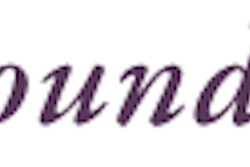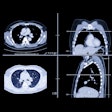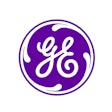
NEW YORK (Reuters Health), Mar 18 - Radioembolization with yttrium-90 microspheres is a noninvasive treatment option for patients with inoperable primary hepatocellular carcinoma (HCC), researchers reported at this week's annual meeting of the Society of Interventional Radiology (SIR) in Tampa, FL.
Moreover, yttrium-90 can be used to downstage tumors so that patients can undergo liver transplantation, presenter Dr. Riad Salem told Reuters Health.
"That's a huge thing if you can downstage a patient to a transplant candidate -- you actually have a chance for cure," Dr. Salem said.
Dr. Salem explained that HCC is a particularly difficult condition to treat, since most patients are not surgical candidates when they present.
Between 2004 and 2008, Dr. Salem and his colleagues at Northwestern University in Chicago treated 291 patients with 526 yttrium-90 treatments (mean 1.8; range 1-5). In 87% of cases, yttrium-90 was the primary therapy. Dr. Salem said this is the largest report of HCC treated with yttrium-90 in glass microspheres, a treatment approved by the U.S. Food and Drug Administration.
Overall time to progression was 7.9 months, but Dr. Salem said, "We retreat people upon regrowth or if new tumors develop."
Patients in Child-Pugh class A with or without vascular invasion survived the longest, for a mean of 17.2 months, according to the investigators. Patients in Child-Pugh class B, on the other hand, survived a mean of 7.7 months without vascular invasion and 5.6 months with vascular invasion.
The treatments led to downstaging in 58% of cases, Dr. Salem said. He noted that yttrium-90 treatment works well for diffuse tumors and for metastatic lesions as well.
Yttrium-90 microsphere treatment compares well with other nonsurgical treatments for HCC. For example, he said, radiofrequency ablation works best for small tumors, "while most of our patients had large tumors; the average size was 7 centimeters."
Response rates are similar for yttrium-90 and chemoembolization, he continued, but yttrium-90 "appears to be more versatile -- it is better tolerated by patients with no side effects of chemotherapy, and it eliminates the need for hospitalization."
"We see this as a real paradigm shift in how to treat these liver cancers," Dr. Salem concluded.
Dr. Yuman Fong, a hepatobiliary surgeon at Memorial Sloan-Kettering Cancer Center in New York who was not involved in the study, told Reuters Health by e-mail that 80% to 90% of hepatomas are unresectable, but patients "can still live a long time (years) with good response to ablative therapy."
He called radioembolization with yttrium-90 "an interesting new treatment option, very different than chemoembolization." Even though chemoembolization is the most established palliative therapy for HCC, he noted that "Y90 can be used for patients even when the portal vein is occluded by tumor."
Still, at his institution, the "treatment of choice" for unresectable HCC is "bland (no chemo, no radiation) embolization -- it's the cheapest and least toxic."
By Karla Gale
Last Updated: 2010-03-17 18:38:18 -0400 (Reuters Health)
Related Reading
Chemoembolization, yttrium give similar results against advanced liver cancer, February 2, 2010
New technology spurs investment in brachytherapy, April 23, 2009
Copyright © 2010 Reuters Limited. All rights reserved. Republication or redistribution of Reuters content, including by framing or similar means, is expressly prohibited without the prior written consent of Reuters. Reuters shall not be liable for any errors or delays in the content, or for any actions taken in reliance thereon. Reuters and the Reuters sphere logo are registered trademarks and trademarks of the Reuters group of companies around the world.

















